It’s quite an undertaking: Catalog the unique factors—biological, lifestyle and environment—that determine health outcomes, good or bad, for all manner of human.
Rich, poor. Men, women. Rural, urban. White, black, Asian, Hispanic and many others.
Pull back the curtain and see what makes everyone tick, on the inside, in hopes of one day developing health care prevention and treatment plans that are highly customized.
That’s the thrust of the All of Us Research Program, a long-term National Institutes of Health study with an eye on collecting health and genomics data from 1 million adults in the U.S.
The program is an offshoot of the Precision Medicine Initiative, the Obama administration’s 2015 reach toward the development of highly individualized health care. At its core, it’s a proactive approach to medicine—and a rather bold step away from the “one-size-fits-all” approach.
All of Us rolled out its pilot program in 2017, allowing participating health care organizations to test their engagement and enrollment systems. (Enrollment will expand online at the Participant Technologies Center, once the beta phase ends.)
Spectrum Health, through a continuing relationship with the National Institutes of Health, is one of about four dozen U.S. health care organizations offering signups in this test phase. More organizations are expected to join later.
The project’s breadth is impressive—a $1.5 billion behemoth poised to pull in mountains of personal health and genomics data. Researchers plan to query the data, an undertaking that will demand a staggering amount of institutional and government resources and expertise.
“To do research on this scale, it takes a national consortium,” said Dave Chesla, director of research operations at the Spectrum Health Universal Biorepository. “It takes a lot more than a village or an army. It takes a consortium and someone central, like the NIH, to do this.”
Chesla is leading the All of Us efforts for Spectrum Health, pulling in volunteers from the Grand Rapids and greater West Michigan areas. While All of Us has its own FAQ section, Chesla addressed some of the questions that hopeful participants in West Michigan might have.
Who can participate?
Anyone age 18 and older, living in the U.S. The study is agnostic to state of disease or wellness—anyone can join, no matter their health condition. In West Michigan, Spectrum Health’s “catchment” area, signups are now limited to prior or existing Spectrum Health patients, although this will eventually open to everyone this spring. But currently, if you’ve had even a single encounter with Spectrum Health—that’s about 90 percent of the Grand Rapids-area population—you are eligible to participate. Simply by visiting the Spectrum Health All of Us enrollment page and entering your full name and birth date, employees can check to see if you have a medical record on file.
What is required of me? What’s my commitment?
You’ll be asked to fill out a series of surveys and then visit one of the All of Us clinics to provide a blood sample. The survey will ask about your health, family, home and work, and you will be asked to provide access to your electronic health record. This could, in fact, be the extent of your participation if you prefer. However, the more you put into the studies over an extended period, the more you’re likely to get back. Those who participate in the program for 10 years—in breakout studies, and by providing more access to their health records—stand to learn much about themselves and the overall trends. This is because the All of Us findings aren’t available only to researchers—they’re available to participants, too.
Will my medical data and personal privacy be safe?
If you have ever been treated at Spectrum Health and you sought a medical referral in another state for whatever reason, Spectrum Health would send your health record electronically. This is a heavily regulated, restrictive process. This type of referral and transfer of data is what All of Us is doing directly. The data is sent to Vanderbilt University, as they received the grant award to manage the data and they have the infrastructure and expertise in place. Access to the data will be tiered, so there’s no reason participating researchers would be able to see a study participant’s name, date of birth or personal identifying information. In short, your data will be safe and secure and your privacy is paramount. You can read more about the All of Us privacy measures.
Where are the Spectrum Health All of Us clinics located?
Spectrum Health has carefully chosen its clinic locations to attract a diverse sampling of the area’s populations. Seven clinics will operate throughout the system at all times, but at least two or three of those may shift in response to seasonal population trends. These will be announced. Currently, four locations will offer permanent clinics:
- The first floor main entrance at Spectrum Health Butterworth Hospital
- The medical office building at Spectrum Health Blodgett Hospital
- The Spectrum Health Integrated Care Campus on East Beltline
- Spectrum Health United Hospital
What organizations are involved?
The National Institutes of Health has teamed with a variety of partners for All of Us, but it awarded key grants to more than a dozen consortiums, each comprised of multiple health care provider organizations or other entities.
Spectrum Health is part of the Trans-American Consortium alongside Henry Ford Health System, of Detroit, and Baylor Scott and White Health, of Dallas. Given the purposeful effort to draw participants from diverse backgrounds, Spectrum Health offers both urban and rural populations to the mix, complementing well the populations offered by Henry Ford and Baylor Scott.
How did Spectrum Health journey into this program?
Spectrum Health developed a relationship with the National Institutes of Health in 2012, receiving a research grant as part of the Cancer Genome Atlas. In December 2015, Spectrum Health Research and Spectrum Health Public Affairs learned of a new grant opportunity through the All of Us Research Program. After some discussions to determine if this project was the right fit, it was decided it was indeed a great fit—All of Us aligns quite well with what Spectrum Health is striving to achieve in terms of creating wellness health strategies, as opposed to reactionary disease management. After an initial joint grant application with Henry Ford Health System, a subsequent application—this one forming a consortium with Henry Ford and Baylor Scott—was approved.
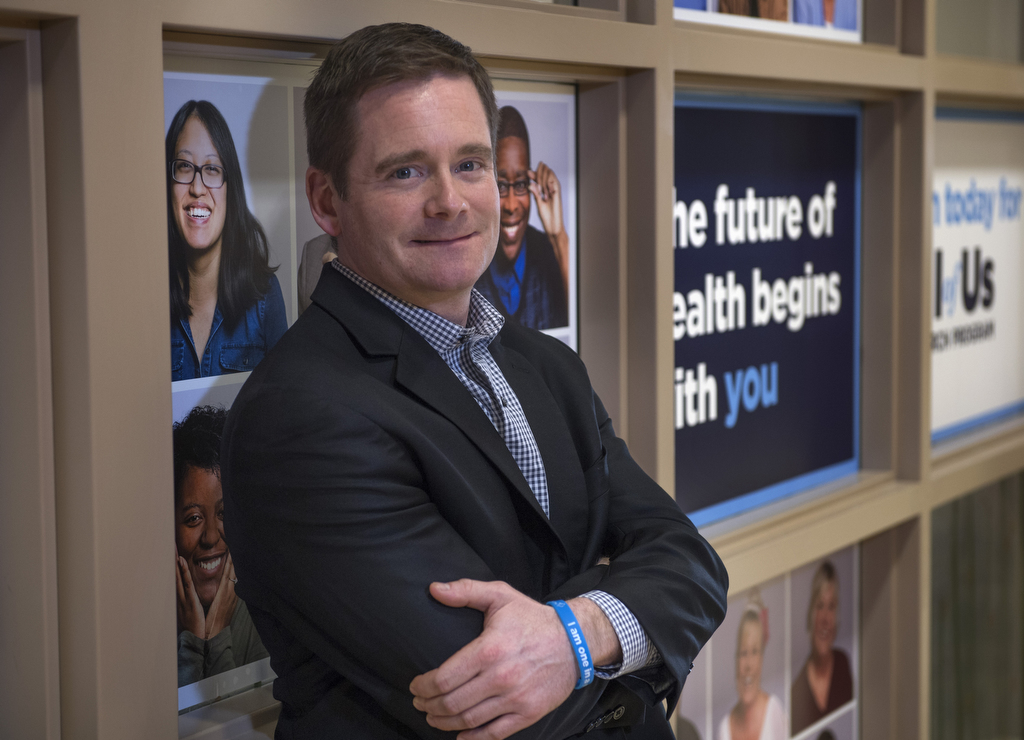
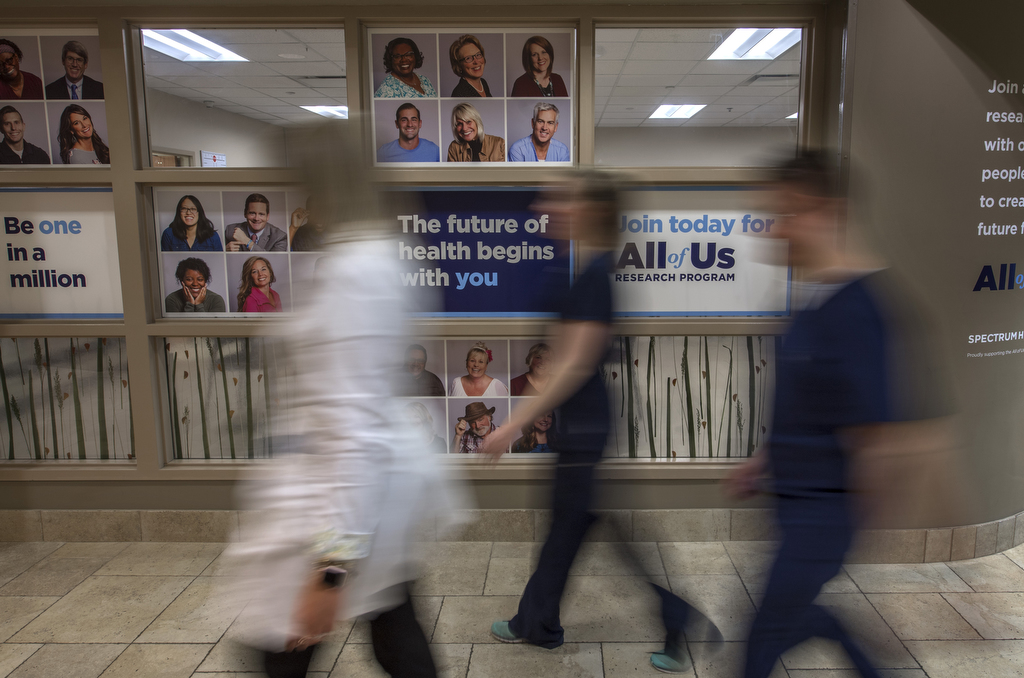
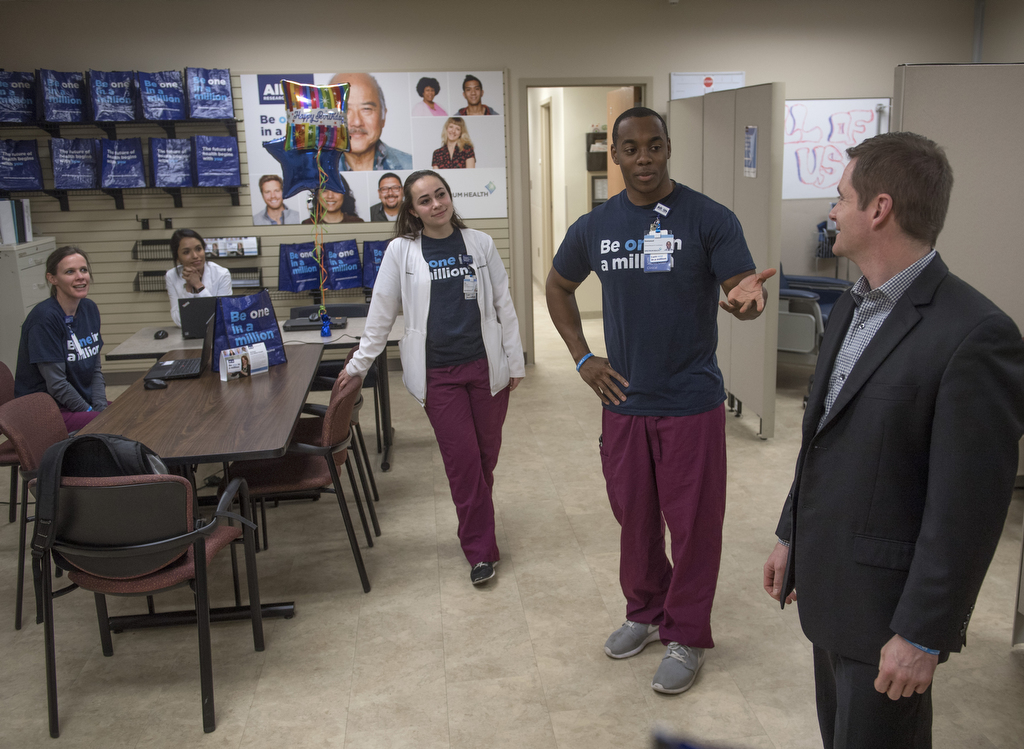
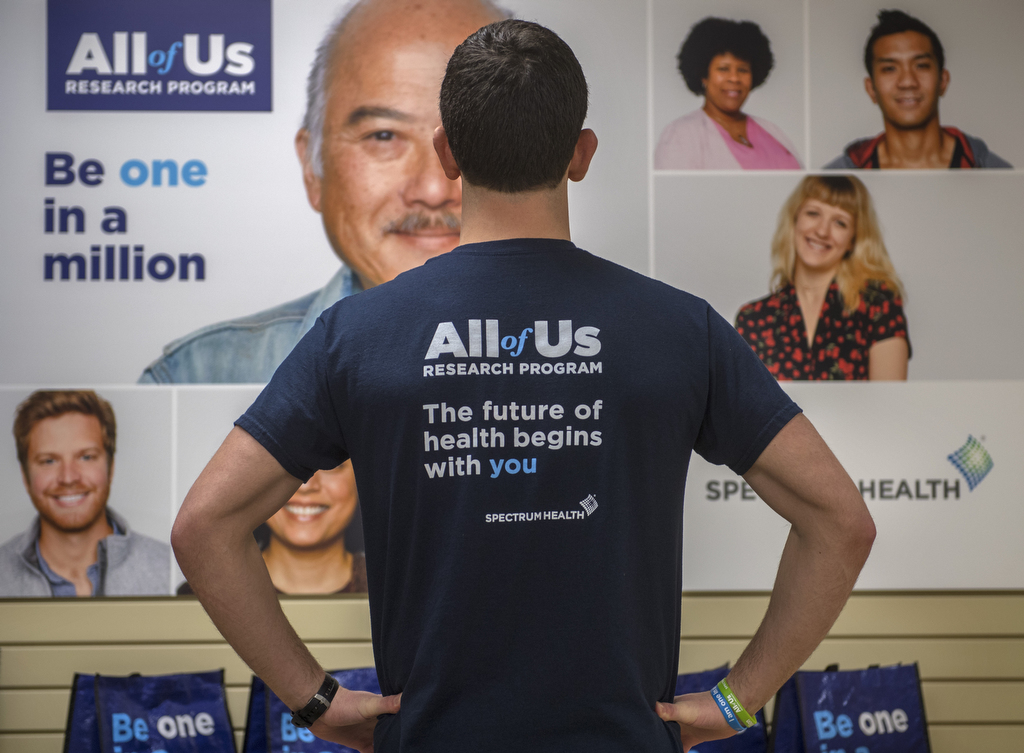
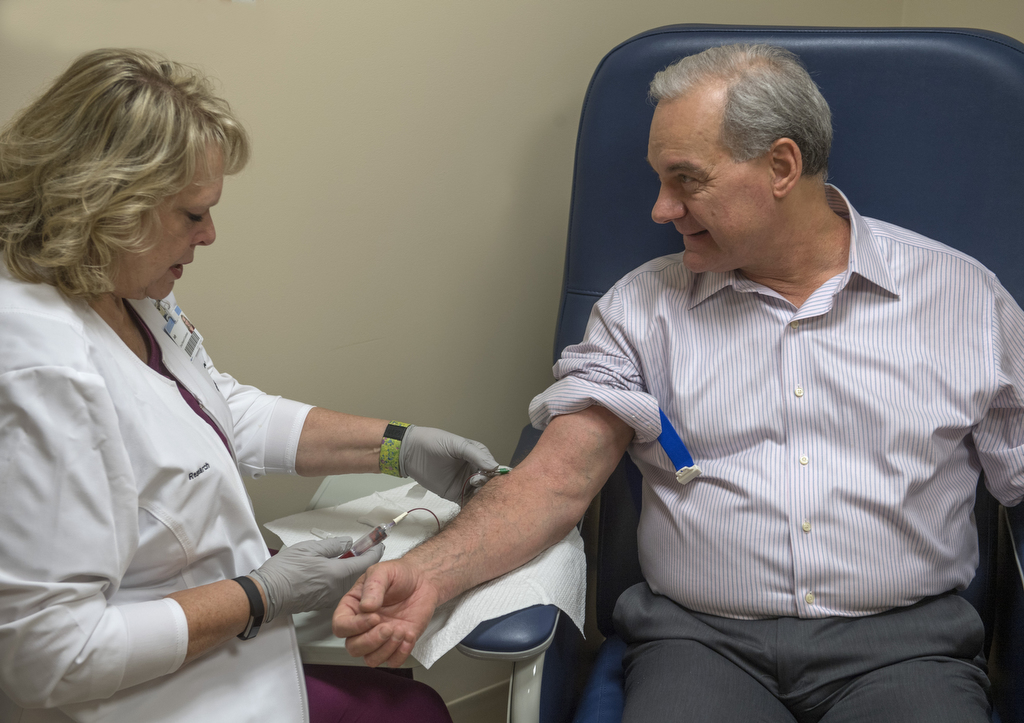
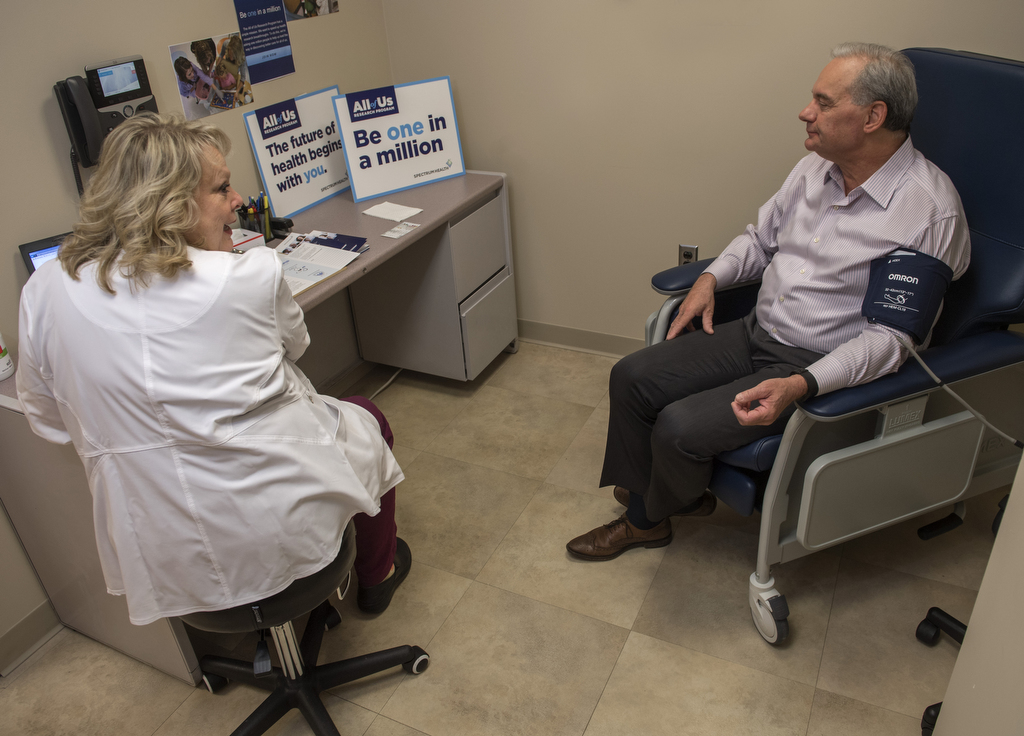
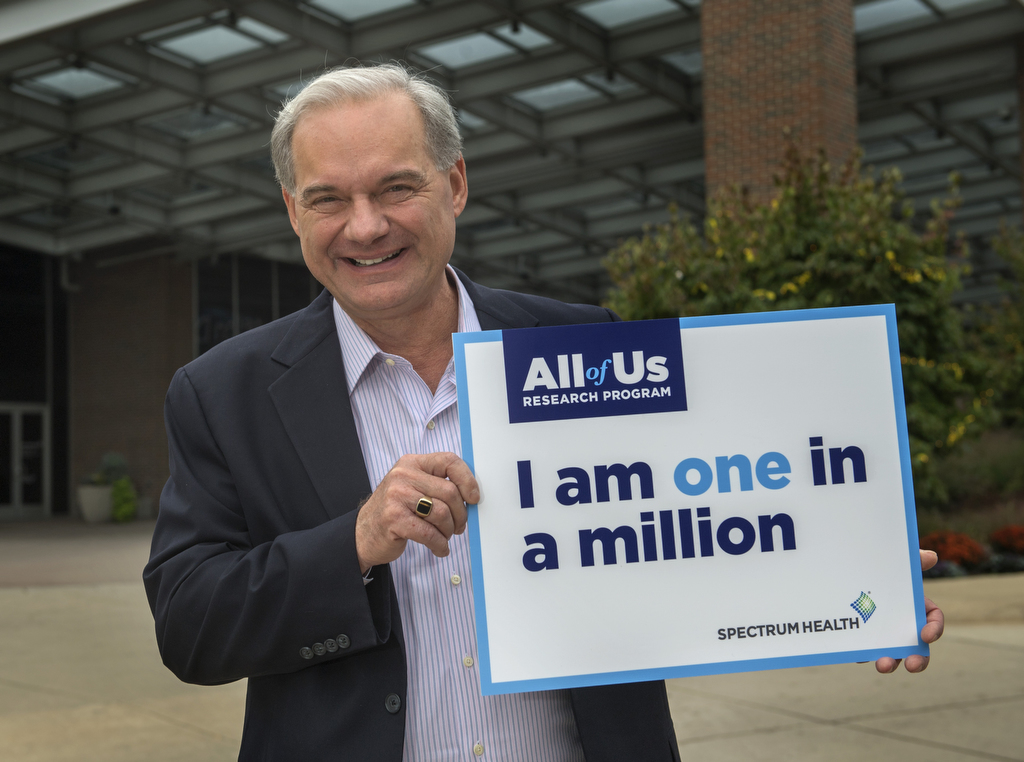
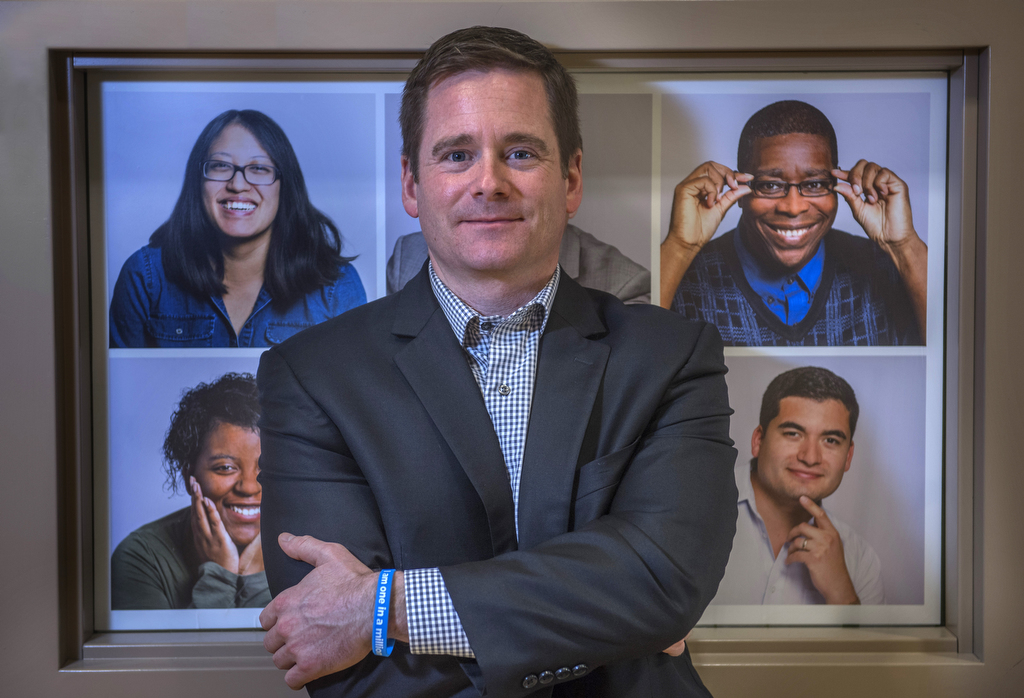
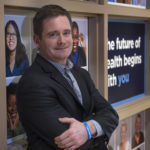
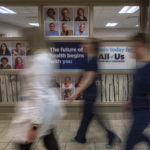
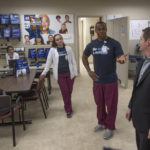
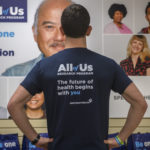
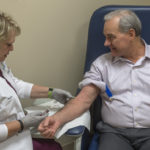
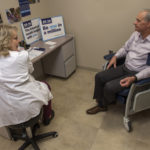


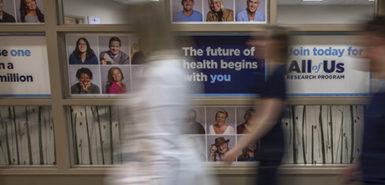 /a>
/a>
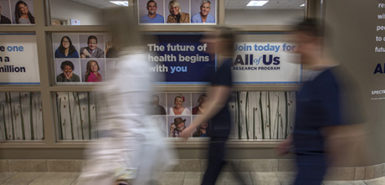 /a>
/a>
 /a>
/a>
Thanks!